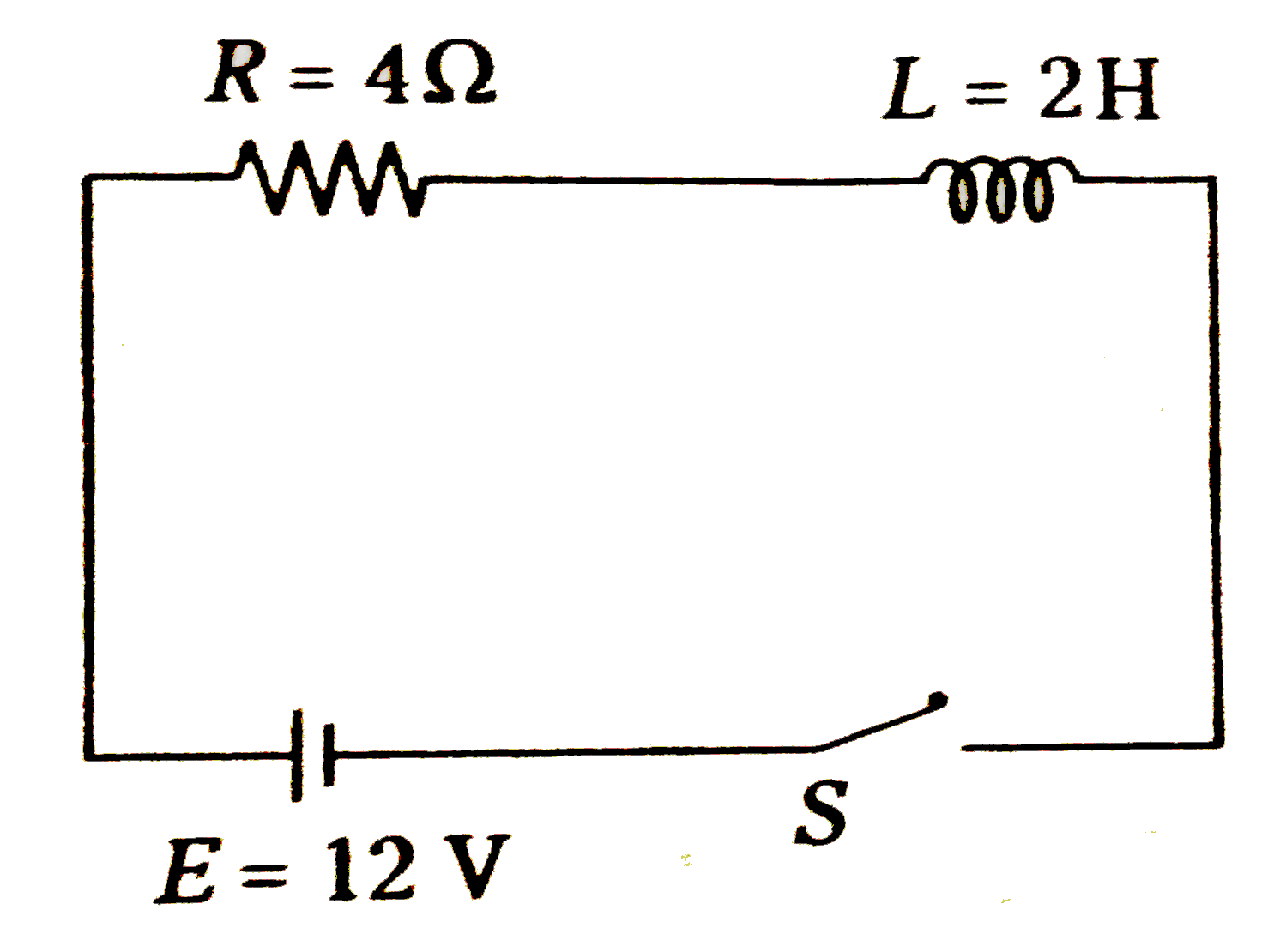What determines the rate at which energy is delivered by a current ?
The rate of consumption of electric energy in an electric appliance in called electric power. Hence, the rate at which energy is delivered by a current is the power of the appliance.
Topper's Solved these Questions
Similar Questions
A 3.56H inductor is placed in series with a 12.8Ω resistor. An emf of 3.24V is then suddenly applied across the RL combination.
(a) At 0.278s after the emf is applied what is the rate at which energy is being delivered by the battery?
(b) At 0.278s, at what rate is energy appearing as thermal energy in the resistor? (c) At0.278s, at what rate is energy being stored in the magnetic field?
View SolutionA3 H inductor is placed in series with 10Ω resistor and an emf of 10V is applied to the combination. Find
(i) the current at 0.3s,
(ii) the rate of increase of current at 0.3s,
(iii) the rate at which energy is dissipated as heat at t=0.3s.
(iv) the rate at which energy is stored in the magnetic field at 0.3s.
(v) the rate at which energy is delivered by the battery, and
(vi) the energy stored when the current has attained steady value.
View Solution
Knowledge Check
A 3 mega ohm resistor and an uncharged 1μF capacitor are connected in a single loop circuit with a constant source of 4 volt. At one second after the connection is made what are the rates at which,
(iv) Energy is being delivered by the source.A16(1−e−1/3)μJ/sB16μJ/sC163e−1/3μJ/sD163(1−e−1/3)μJ/s
What determines the rate of foreign exchange?
View SolutionIf a battery of emf E, internal resistance r is being charged by a current Ifrom a charge then the rate at which energy is supplied by charger is ……. And the rate at which chemical energy is stored in the battery is ……
View SolutionAn electric current of 4.0A flows through a 12Ω resistor. What is the rate at which heat energy is produced in the resistor?
View SolutionA coil of reistance 5Ω and inductance 1H is connected to a battery of 10V. At t=0s, calculate (i) the current in the circuit (ii) the rate of rise of current (iii) the rate at which energy is supplied by the battery, (iv) the rate at which energy is dissipated as heat and (v) the rate at which energy is stored in the magnetic field of the coil.
View SolutionAn L−C−R series circuit with L=0.120H,R=240a, and C=7.30μF carries an rms current of 0.450A with a frequency of 400Hz.
(a) What are the phase angle and power factor for this circuit?
(b) What is the impedance of the circuit?
(c) What is the rms voltage of the source?
(d) What average power is delivered by the source?
(e) What is the average rate at which electrical energy is converted to thermal energy in the resistor?
(f) What is the average rate at which electrical energy is dissipated ( converted to other forms) in the capacitor?
(g) In the inductor ?
View SolutionA coil with an inductance of 2.0 Hand a resistance of 10 Ω is suddenly connected to an ideal battery with E = 100 V. At 0.10 s after the connection is made, what is the rate at which (a) energy is being stored in the magnetic field, (b) thermal energy is appearing in the resistance, and ( c) energy is being delivered by the battery?
View Solution
At t = 0, switch S is closed, calculate
(i) initial rate of increase of current, i.e., didtat t=0.
(ii) didt at time when current in the circuit is 0.5A.
(iii) Current at t = 0.6 s.
(iv) rate at which energy of magnetic field is increasing, rate of heat produced in resistance and rate at which energy is supplied by battery when i = 0.5 A.
(v) energy stored in inductor in steady state.
View Solution
